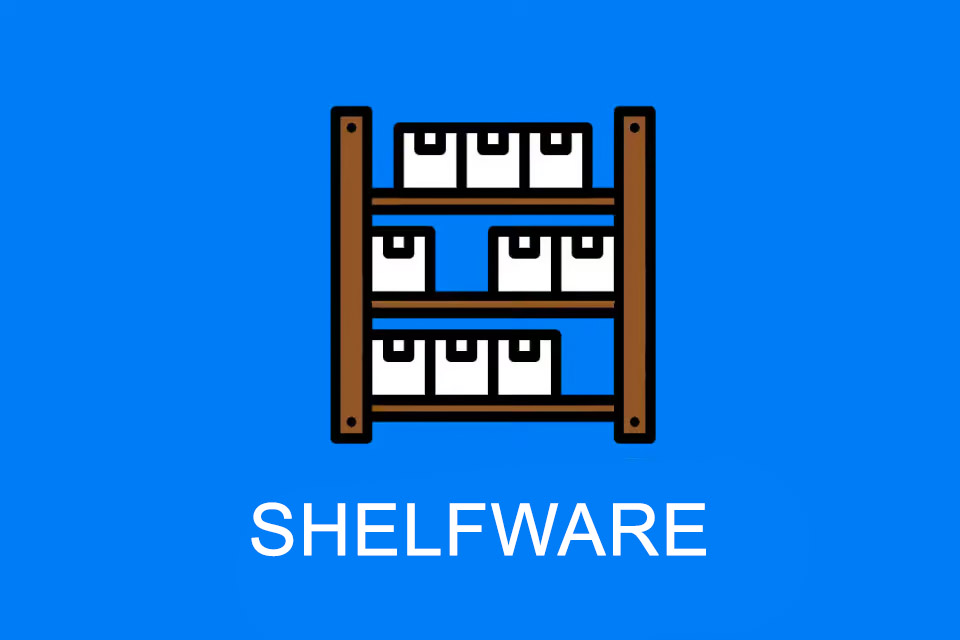What is Shelfware?
Smartpedia: Shelfware is a colloquial term for software that is not used and therefore stored in the shelf.
Shelfware – unused or non-usable software
Shelfware is a colloquial term for software that is not used or cannot be used and is therefore stored in the shelf. There are several reasons why software becomes shelfware:
- The organisation has made mistakes in software procurement or implementation. For example, important stakeholders may have been ignored during the software selection process, or little or no user training may have been scheduled during software implementation.
- The software does not work with existing programs, because necessary interfaces were overlooked during the requirement determination.
- The software is neither performant nor intuitive to use.
- As so-called bloatware, the software offers too many unnecessary functions and is avoided by users.
- The implementation of the software is so time-consuming that the project is terminated for cost and time reasons.
- The software is purchased in a quantity that is not necessary in daily work. This often happens when the deployment scenario is judged too positive or the supplier offers larger discounts for larger quantities.
- Users refuse to use the software because they see no personal advantage in using it, they are satisfied with an existing solution or they have worries and fears about the new software.
The importance of shelfware in the present
Nowadays many software packages are downloaded online or distributed automatically in the network, so the linguistic basis for the term shelfware is not very current. Software is no longer delivered on CDs or floppy disks, so it cannot be stored on a shelf. Regardless of this, companies should of course try to buy or develop software that meets the needs of users. If this succeeds, shelfware will only remain a theoretical term.
Notes:
If you like the article or would like to discuss it, please feel free to share it in your network. And if you have any comments, please do not hesitate to send us a message.
Here you can find additional information from our t2informatik Blog:



